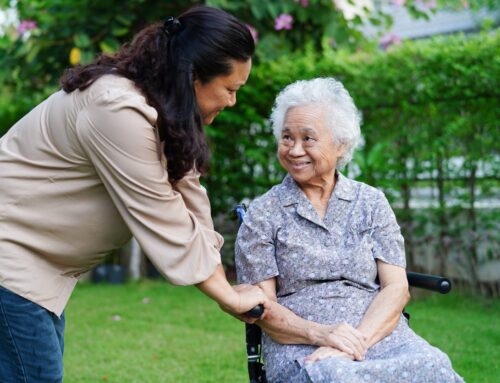This post is also available in:
हिन्दी (Hindi)

One of my specialist interests is in a condition called POTS (postural Orthostatic Tachycardia Syndrome). This is a condition that affects young patients (more women than men) who struggle with severe chronic fatigue, an inability to stand up for a prolonged period of time, heart palpitations, brain fog, lack of refreshing sleep, IBS-like gut issues, fibromyalgia and chronic pain. Despite self management, lifestyle changes, and medications, patients still continue to struggle. I am always therefore interested in knowing about other possibly even unconventional medicaments that may become available and serve to improve symptoms and quality of life in my POTS patients.
POTS is not a condition that many doctors know about, and therefore our understanding of its pathophysiology and potential treatments is still in its infancy and all the research that is coming out involves a very small number of patients and given this limitation, does not get adopted in mainstream daily practice.
Naltrexone (like Naloxone) is an opioid antagonist and it therefore used in acute and chronic states of abuse. It is classically given in doses of at least 50mg to be taken daily. Whereas some agents have a linear dose-effect curve, Naltrexone is interesting in that it has different pharmacodynamic effects at different doses. This is called the ‘hormetic priciple’. Therefore different doses of Naltrexone may have different ‘beneficial effects on the body’. This is where the interest in lower doses of Naltrexone was generated.
Naltrexone doses of 0.5-4.5mg daily are termed ‘Low dose’
Doses of < 1mcg/day have been termed ultra low dose
Anything in between 1mcg/day to 0.5mcg/day are termed as Very low dose.
In discrete low doses of 1-5mg/day Naltrexone acts as a glial modulator and in very simplistic terms reduces inflammation. Given these properties, there has been considerable interest in whether low dose Naltrexone may have beneficial effects in chronic inflammatory diseases such as Crohn’s disease, Fibromyalgia, Multiple sclerosis, cancer and even chronic pain states. I was interested in seeing if there is any evidence that LDN could help my POTS patients.
Low dose Naltrexone (LDN) for Fibromyalgia
There is some evidence that LDN may improve quality of life in patients with Fibromyalgia. The first study evaluated 10 women with symptoms. Patients were given 2 weeks of placebo followed by 8 weeks of 4.5 mg LDN with a subsequent 2 week wash-out period.Following completion of the trial 6 patients achieved a 30% reduction in symptoms. Overall reduction in symptoms was 2.3% on placebo and 30% on LDN.
Patients also noticed that they had reduction in how severe their worst pain was, fatigue and stress. Objectively their inflammation levels as measured by ESR were also generally lower.
The same research group repeated the study giving patients 12 weeks on LDN and 4 weeks on placebo. Over 57% of the 28 patients reported a 30% reduction in symptoms. Patients were also more likely to report better mood and better satisfaction with life. In terms of side effects, patients on LDN reported more vivid dreams and perhaps more headaches but overall the LDN was rated as tolerable as taking a placebo tablet. It was also found that these side effects were minimised if the dose of LDN was dropped to 3mg daily.
The researchers were also interested in what LDN did to markers of inflammation in the body and found that LDN was noted to be associated with significantly lower levels of inflammatory cytokines such as IL-2, IL6 and TNF alpha.
LDN in IBS and other gut pathologies
LDN may also have beneficial effects on the gut
In 2006, an Israeli research group conducted a study in 42 patients with IBS. It was an open label study and 0.5mg LDN was given daily for 4 weeks. The drug was well tolerated and 3 out of 4 patients felt an improvement in their symptoms. Since then there have a been a bunch of small studies in inflammatory bowel disease with encouraging results in terms of improving severity of symptoms and overall quality of life.
What about side effects?
At high doses there is a risk of causing liver damage but usually at doses of 300 mg per day.
The usual 50-100mg daily is considered fully safe. There are some minor behavioural side effects reported but this may be less to do with the medication and more to do with the patients that that dose is used for.
Low dose Naltrexone is generally not associated with significant side effects from the limited data that is available. In some patients, there may be more vivid dreams and insomnia but this can be addressed by changing the timing of the medication from usual bedtime to morning hours.
Clearly this is an interesting medication and worthy of more research. It is always important to bear that whenever we have data from very small studies the effects are always exaggerated and we always need to use small studies to inform the design of much bigger well-designed studies to get a more accurate assessment of benefit, harm and cost-effectiveness. In the meanwhile i would encourage everyone to do their own research about this interesting medication and to discuss it with their medical care provider.
Thank you once again for listening.
This post is also available in:
हिन्दी (Hindi)


Hello dr.how do you test for pots ?
I wondered if high dose bit c is not helpful or doesn’t it matter
Ivabradine has also show benefit in pts with POTS. Although, again, a small study.
Dear Dr. Gupta, I have intolerances to Gluten, Dairy and Histamine and I also have Roemheld’s syndrome! So I’m constantly juggling what I can eat and drink. I find it very demoralising. I’ve been tested for Gluten and Dairy intolerances but nothing showed up! I’m 75 years of age and my condition seems to be getting worse recently. At the moment, I’ve started on the reduced FODMAP diet, which seems to help. I’ve come across your name in the Roemheld Syndrome Forum on-line group and also in a learned article on RS by Hector Osorio in Mya Care. I use FOS (recommended in Guilia Enders GUT book) and I also take Magnesium. I don’t want to take PPIs every day but I take it if necessary to control an attack. I have had a lot of stress in my life and I know that this has played its part. Thank you in advance, yours sincerely, Irene Renshaw
I wondered if you had any advice on medication!
Dear Doctor Gupta
I can concur that LDN helps with fibromyalgia symptoms, pain/brain fog etc. I have been taking between 4mg and 6mg each evening for the past two and a half years. Wonderful to find a doctor open to LDN, thank you. Jane Myers
Dr.Gupta,. Why is Menopausal symptoms overlooked by most Doctors?. I am currently having Menopausal symptoms of anxiety /panic ,hot flash interrupted sleep in which now is spiking up my blood pressure during waking hours usually 150/100’s. I asked my doctor and she did not seemed to to look into it, I stead she gave me HBP pills to take. I don’t want to take them because I want to find out the root cause.
LDN has helped give me my life back. I have had POTS and POTS symptoms for many years, starting LDN (I’m at 1mg) allows me to feel much less fatigued. I have felt more energy, have had less adrenal dumps, less stress, better sleep, way less brain fog, and I feel more emotionally stable which allows me to be happier. Most importantly, I can participate in daily life again, I can drive, cook, play with my kid and be independent and even go for short walks. It has worked wonders for me, though it is of course not a cure-all. I have other medications and health issues that come into play, but LDN has been the single most effective treatment I have encountered.
At 1.5mg tablet i seem to be ina world of pain. Upper back between shoulderblades feels like the pain i have when had pneumonia and feels like right lung in back through to front of chest is inflammed. Heart pain and severe headaches. This is my last resort for a medication to help my fibro, CFs POTs and mold toxicity issues and i am wondering if i need to drop back to .5 or 1 instead of 1.5 capsule. I honestly feel like my eyes are burning and my body is inflammed everywhere. Is this normal and ia this a good thing like its causing a herx reaction or the tcells are full force working on underlining infections or inflammation and hence should ride this out. I collpased few days ago and havnt had a POTs episode in a while so was strange to have such an autonmic system decline on ldn. Any advice much appreciated as i dont want to give up hope this med could give me beter quality of life but at same time im bit scared how bad this pain is in lung chest and upper adbomen and head eyes while on it
Hey Kris,
Ever looked into high dose thiamine combined with other vitamins and minerals?
Check out Dr. Derrick Lonsdale research on dysautonomia/POTS and chronic fatigue.
I was bedridden from 2015 until 2021, diagnosed with fibromyalgia/CFS/POTS/chronic Lyme and so on.
Now I’m walking at least 2.5 km per day and today I walked 5 km. I’m far from fully recovered but I am sure that one day I will be.
I wrote my story on hormonesmatter.com.
M
Thank you so much Dr! I am going to speak with my Dr about this. I am at wits end trying to function with POTS for ten years & symptoms are getting worse. Thank you so very much for offering hope.Jackie Norton
Louisiana
I have been diagnosed with Lewy body dementia, and autonomic nervous system dysfunction. My physical abilities are going down quickly. I have severe orthostatic hypotension. 60/40 blood pressure. I feel faint during the day always tired. Light bothers me because it gets too bright outside. Muscle pain, weakness, and shoulders and neck within seconds to minutes can barely wash my hair sweating, for no reason, nausea, constipation, dizziness. Will Low dose naltrexone possibly help me.